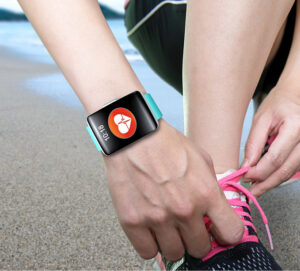In this second of a series of articles on precision medicine, we look at how health data of patients can play a vital role

BY DR WAEL MY MOHAMED
You are not alone if you use a smart watch or even your phone to track how many steps you take each day. In 2019, over 86 per cent of adults in Europe had access to mobile devices.
In 2020, smartwatch sales hit over seven million. Large volumes of digital data, including information about your lifestyle (sleep, physical activity), or physiology (heart rate, perspiration), are continually collected by the sensors incorporated in the wearables.
But have you given any thought to how this information may be put to use? With the help of the ‘connected health’ idea, readily available consumer technology may be employed in healthcare to provide patient care outside the hospital or doctor’s office.
 Care will be provided most proactively and efficiently possible due to devices and services tailored to the individual patient’s requirements and the sharing of relevant health data. There has been a rise in the usage of wearable sensors to track patient vitals and aid in the early detection and diagnosis of illness.
Care will be provided most proactively and efficiently possible due to devices and services tailored to the individual patient’s requirements and the sharing of relevant health data. There has been a rise in the usage of wearable sensors to track patient vitals and aid in the early detection and diagnosis of illness.
So, the medicine of the future may be supported thanks to linked health, which is a crucial aspect of the precision health model of the future. Scientists are already investigating fitness using this kind of technology.
Invaluable data on tiredness and running form may be gleaned from wearable technologies like pressure-sensing insoles. Injury risks may be predicted and avoided if one has a firm grasp of how individuals move. Fitness and health may be measured by accumulating data on sleep, physical activity, and metabolic indicators such as blood sugar levels.
The ‘digital twin’ idea
There is no such thing as a “typical” individual or “typical” patient. But then, why are we all given the same therapy based on the same set of symptoms?
If we successfully implement precision health, we will soon be able to tailor medical care based on an individual’s “digital twin.” The digital twin is a novel idea in health research that was borrowed from the manufacturing sector, where identical digital representations of physical objects (such as aeroplanes or vehicle engines) are generated and used to foretell the latter’s behaviour in the actual world.
In the medical industry, digital twins might be used to examine a patient’s health and unique traits, as well as predict how those qualities will develop over time. The basic idea is that someone becomes sick for the first time and goes to a doctor who has never seen them before.
After meeting with the patient in person, the doctor will consult a massive database containing information on many other individuals with the same ailment to find a representative sample with the most comparable or identical health parameters. This ‘digital twin’ health history will be tracked throughout time.
The information might help the doctor choose the best course of treatment and predict the new patient’s illness progression. They might then counsel the new patient, perhaps suggesting a different course of treatment or a tailored preventative care plan based on the individual’s history. As a result, doctors may now draw from not just their personal experiences but also the information in the medical records of thousands of patients.
Immunophenotyping at the cellular level
The immune system is responsible for defending the body against dangerous pathogens and cancer cells when the body is under assault by bacteria, viruses, fungus, or other external invaders. The immune system is made up of many distinct kinds of cells, much like an army.
Diseases may result from dysregulation in any of the implicated immune cell types. Evidence mounts that immunological dysregulation contributes significantly to the development of many different illnesses, including but not limited to infectious ones, cancer, autoimmune, neurodegenerative, and many more. The inability of the immune system’s regulatory arm to avoid harmful immune responses against healthy cells has been linked to a wide range of human diseases.
In this setting, a comprehensive immunophenotyping plan is crucial. Each patient’s particular immunological condition is revealed through deep immunophenotyping.
Each cell that contributes to a disease may be isolated using surface markers. Infectious disorders, cancer, neurological conditions (such as Alzheimer’s or Parkinson’s), and autoimmune diseases (such as rheumatoid arthritis) may all benefit from this research.
Moreover, extensive immunophenotyping may foretell which patients would have more severe symptoms or see a slower recovery. Since every individual has a distinct immune system, this is also very significant to precision medicine. To achieve true individualisation in healthcare, tailored deep immunophenotyping should be used for both illness diagnosis and treatment decision-making. – The Health








